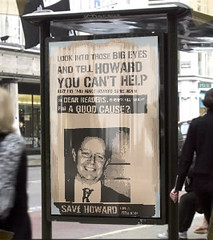
Those pushing the need for health care reform spend a lot of time talking about the uninsured and the many unfortunate people who cannot or will not afford to pay for health care. (Mostly they talk about the “cannot pay” people except when they are proposing to have individual mandates, then they start talking about “freeloaders” who don’t get insurance even though they can afford it.) These people claim that health care is a right and (although they don’t use the word) they are proposing that the government can and should provide charity care for those in the “cannot pay” camp. The only problem is that government has been trying to do that for a long time through medicaid and medicare. The fact is that government cannot provide charity care – government can only take from those it chooses to burden and give to those it chooses to help. This warps the system even when it is meant to level the playing field.
In health care, the government must either take money through taxes, fees, and penalties, or else it must demand that health care providers go uncompensated. Neither of those situations equals charity. Charity is the voluntary donation of goods and services for the benefit of others. Anyone may donate money, time, or equipment that are theirs to give. Additionally, doctors may donate expertise that is theirs to give. The resources thus donated are given freely for the benefit of those who need what is given – to the limit of those resources – without the warping influence of force. Thus charity is able to make the playing field more level without warping the system.
Many who favor true free-market health care argue that if government would step back society would pick up the slack with charity care that is more efficient. I have heard some who are dependent on government assistance with extreme medical bills – the kind that are not the fault of any person – who respond that if they felt they could depend on charity care to pick up the slack for their enormous costs they would be happy so see government step back, but they are doubtful.
[quote]It may sound callous of me, but I will not argue that charity care will pick up all the slack if government steps back – I only contend that government is incapable, by its very nature, of providing charity care because government can only operate through force of one kind or another. I also argue that the only way to successfully meet all the needs of the hungry, naked, sick, and afflicted, is through real charity.
There are no guarantees that there will be sufficient charity offered to meet all needs. Two things are guaranteed – first, that if the amount of charity given is less than the need it indicates a problem in society; second, that such a problem, when it exists, cannot be solved through the powers of government. Where society is broken such that charity is insufficient to meet demand government can only do those things which are the proper role of government – specifically by ensuring justice for all by prosecuting fraud and abuse. If government oversteps its proper role it may aggravate the underlying social problem, but it cannot fix it.
Leave a Reply